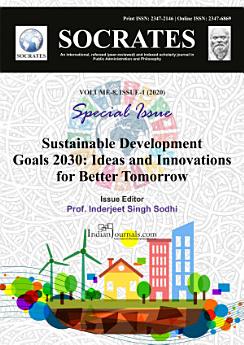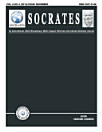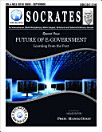SOCRATES: Vol. 8 No. 1 (2020): (Special Issue) June, Sustainable Development Goals 2030: Ideas and Innovations for Better Tomorrow
About this ebook
In the very first paper, Prof. Arvind K Sharma talks about strategies for quality education (SDG-4) in India. He examines select micro-level considerations as it portrays the strategies for academic excellence in the country’s higher education sector. His paper focuses next on the dire need to launch a country-wide campaign to translate the classics of the respective disciplines in the Hindi and Regional Languages. In the second paper, Deepak Mishra analyses the basic principles of Nai Talim in terms of educational curriculum and pedagogy and examines its role in contemporary India. He has very well attempted to highlight the relevance of Gandhiji’s New Talim for achieving the SGD-4, i.e. Quality Education.
The concept of localizing the Sustainable Development Goals has been gaining attention among the intellectuals and professionals. The localisation of SDGs is how local governments can critically contribute to the overall achievement of the SDGs. In this context, Ashish Jha has elucidated the role of Panchayati Raj Institutions in achieving the SDGs. Accountability is one of the key features for a Good Government, and effective Public Service Delivery is a major function of government. Sandeep in the fourth paper has discussed the role of social accountability for effective public service delivery. He highlights how citizens- individually and collectively, can influence service delivery through access to information and opportunities to use it to hold the providers accountable. In the fifth paper, Arpan Kumar Sharma, Nayan Jyoti Nath, and Dr Tanu Shukla try to explore the relationship between the level of education of women and its influence on the fertility in Empowered Action Group (EAG) states of India. The paper further highlights that the interplay of education and fertility is further affected by religion, which acts as the determinants of fertility. In the next, Dr Bharati Garg and Anupama Sharma discuss integrating culture in various initiatives for achieving SDGs. They rightly observe that cultural rights, diversity and creativity are core components of human and sustainable development. In the sixth paper, Nilanjan Bhor has tried to link education with Health. He has cited the lessons from children of migrant construction labourers in India for his arguments. He advocates for the compulsory bridging programme for migrant children, compulsory health-checkup and supplementary nutrition along with education and inter-state partnership in addressing schooling of migrant children. In the last paper of this issue, Mahesh Singh Soopa and Dr Kuldeep Singh Panwar attempt to explain the emerging trends of food adulteration in India. They have used FSSAI data to show the increasing incidents of food adulteration in recent years and suggested some remedies.
About the author
Professor (Public Administration) & Head Department of Local Governance, Rajiv Gandhi National Institute of Youth Development (RGNIYD), Institution of National Importance by the Act of Parliament, Under the Ministry of Youth Affairs & Sports, Government of India, Sriperumbudur, India
Former Vice-Chancellor, Mizoram University, Aizawl, Mizoram, India
Ph.D. Research Scholar, Centre for Development Studies, University of Allahabad, Prayagraj, Uttar Pradesh
Research Associate, Rajiv Gandhi National Institute of Youth Development, Sriperumbudur
PhD Scholar, Department of Public Administration, Rajrishi Bhartrihari Matsya University, Alwar
Mechanical Engineering, Birla Institute of Technology and Sciences, Pilani
Research Fellow, Department of Humanities and Social Sciences, Birla Institute of Technology and Sciences, Pilani
Assistant Professor, Department of Humanities and Social Sciences, Birla Institute of Technology and Sciences, Pilani
Assistant Professor in Department of Public Administration, Panjab University, Chandigarh, Punjab, India
Ph.D. Research Scholar, Department of Public Administration, Panjab University, Chandigarh, Punjab, India
Senior Associate, Academics & Research Indian Institute for Human Settlements, Bengaluru
Research Scholar, School of Law, Manipal University Jaipur, Rajasthan, India
Associate Professor, School of Law, Manipal University Jaipur, Rajasthan, India








